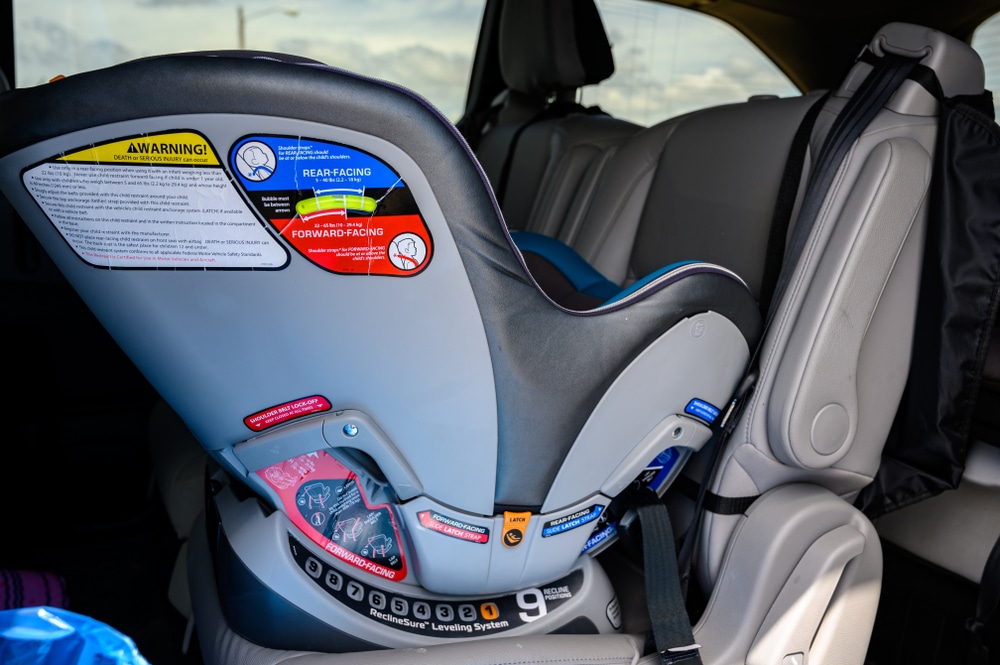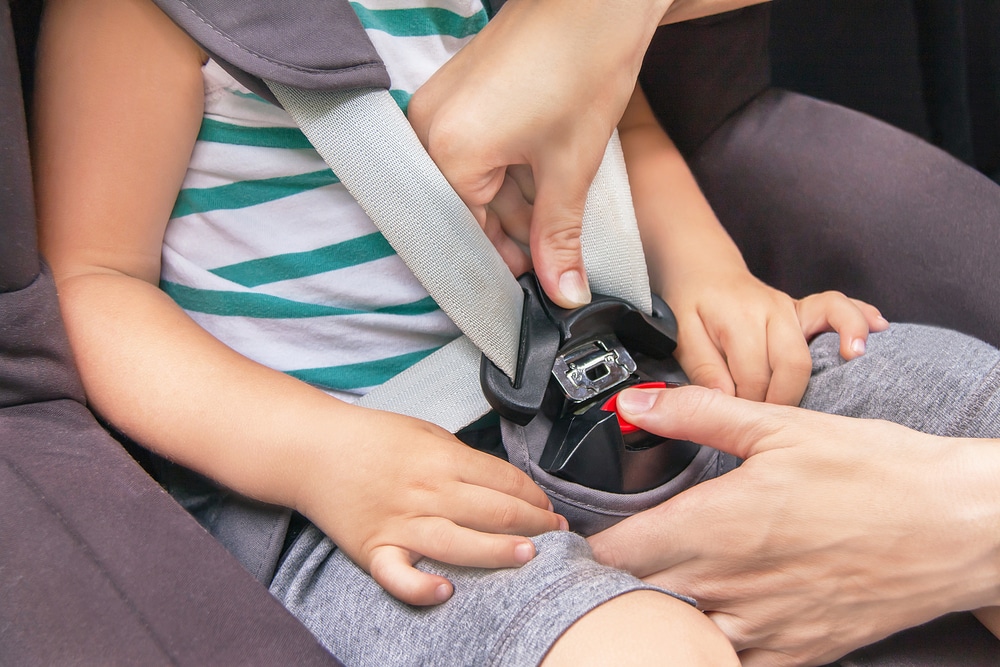Keeping your children safe is the priority of all caregivers. Florida plays its part by having car seat laws that all drivers must abide by, regardless of whether you’re visiting or live there.
Florida seat belt law states that children under six must ride in a crash-tested, federally approved car seat. And children under the age of 17 must use a seatbelt. Florida does not have strict laws about what type of car seat your child needs by age and weight. Compared to other states, Florida’s car seat laws are minimal and may not be the safest standards to follow.
In this article, we’re going to break down the car seat laws Florida uses. We’ll help you understand what type of car seat your child should use by age. And we’ll talk about what happens if your child isn’t in an appropriate car seat.

Florida Car Seat Laws
In Florida, car seats aren’t just a recommendation to keep your children safe. The rules are a written law that comes with punishment for violations. Florida’s traffic law 316.613 provides specific guidelines that all drivers must follow when transporting a child.
The car seat law applies to children by age. Some states go by your child’s weight and height, but these factors do not apply in Florida. If your child is big or small for their age, they may still need to use a car seat.
Children between infant and three require a full car seat that’s either separate from the car or an integrated car seat. These have to pass crash-testing and be federally approved.
For children aged four to five, you can use a booster seat or full car seat, either as a separate device or one built into your car by the manufacturer. These also have to be federally approved and pass safety testing.
Once your child graduates from a car seat, they must still wear a seat belt. Unfortunately, this part of the law is not as safe as other states.
Exceptions to the Law
Some exceptions are in Florida law section 316.613 that defines instances where these laws do not apply.
If your child has a medical condition that exempts them from riding in a car seat, the car seat law will not apply to you. However, you must have the proper documentation from a licensed medical professional explaining the exemption. You will have to present this information to law enforcement if you get pulled over.
The Florida booster seat laws make an exception if you transport another person’s child without getting paid. The car seat law only applies to children that belong to you.
If you are giving someone else’s child a ride, they are not required to be in a booster seat if they are older than four. Children under three still need a full car seat.
Differences in Florida Car Seat Law
Florida’s car seat laws are not as strict as some states. Nor do these laws meet the safety recommendations of the National Highway Traffic Safety Association (NHTSA).
The NHTSA uses the child’s size and age to determine the safest child car seat. This organization recommends using a full car seat until the age of four, compared to three as Florida requires.
The National Highway Traffic Safety Association also recommends booster seats for children between 8 and 12 years of age or longer. Your child should not transition out of a booster seat until they can properly fit into a seat belt.
But Florida law says that once your child reaches the age of six, they can stop using a booster seat and only use the car’s seat belt. However, for safety reasons, you may decide to go with the NHTSA recommendations.
Rear-Facing Car Seats in Florida

Florida does not provide a law on when your child should transition from different car seat types. For example, all infants should ride in a rear-facing car seat. However, Florida does not cover this in their laws.
Since Florida does not define when you should move your child from a rear-facing car seat to a forward-facing one, it’s best to follow federal guidelines to keep your children safe.
Most manufacturers base their safety standards on essential factors like weight and height. You will see their recommendations on the owner’s manual for your purchased seat. Most experts recommend keeping your child in a rear-facing car seat until they’ve reached 20 to 25 pounds.
However, some experts also say you should upgrade your child to a larger rear-facing car seat until they’ve reached 40 to 45 pounds, which means they’ll still face backward as a toddler and up to four years of age.
Forward Facing

Florida laws also do not state when you should switch your child to a forward-facing car seat or when you should stop. Follow the manufacturer’s guidelines for the safest option here as well.
Experts disagree on when to transition your child, but the consensus is between 25 to 45 pounds, or typically around four years of age.
Booster Seats

Florida laws say you can switch your child from a full car seat to a booster seat around four years old. If you choose not to move to a booster seat, you will not violate any laws, but your child will be less safe.
It’s recommended not to move your child to a booster seat until they’ve reached a height of 35 inches but no taller than 4’9. They should weigh between 40 and 80 pounds.
Seat Belts

Florida allows children to start using a seat belt at the age of six. Before this age, a child should be in an appropriate child seat.
However, seat belts do not provide the proper safety for young children, so many people do not transition their children to a seat belt until they are older.
Many safety tests have proven that when a seat belt does not correctly position over a young child’s lap and shoulder, it can cause severe injuries to areas such as the liver, intestines, spleen, and neck. Some cases may result in broken bones, paralysis, and possibly death.
Experts recommend waiting to transition your child to only a seat belt until they are at least eight years old or 4’9” tall.
Related: What is a Car Seat Belt Locking Clip?
Penalties for Violating Car Seat Law
In Florida, if you violate the car seat law by not having your children in the proper car seats, you face losing three points on your license, plus you will have to pay a $60 fine. The cost of the penalty may vary by location.
You can attend a car seat safety course in some places, which teaches you the proper car seat use laws. Attending this class may result in you not losing points off of your license.
During your court date, the judge you see has the final determination in whether you can attend this class and not have the penalty on your license.
Related States: North Carolina Car Seat Laws | Illinois Car Seat Law | Arizona Car Seat Laws
In Closing
Florida car seat laws require you to keep your children in a federally approved car seat until six and use seat belts for children under seventeen. Car seats keep children safe if an accident occurs. Florida’s car seat laws aren’t as strict or secure as other states. You may prefer to use the National Highway Traffic Safety Association’s guidelines instead.






